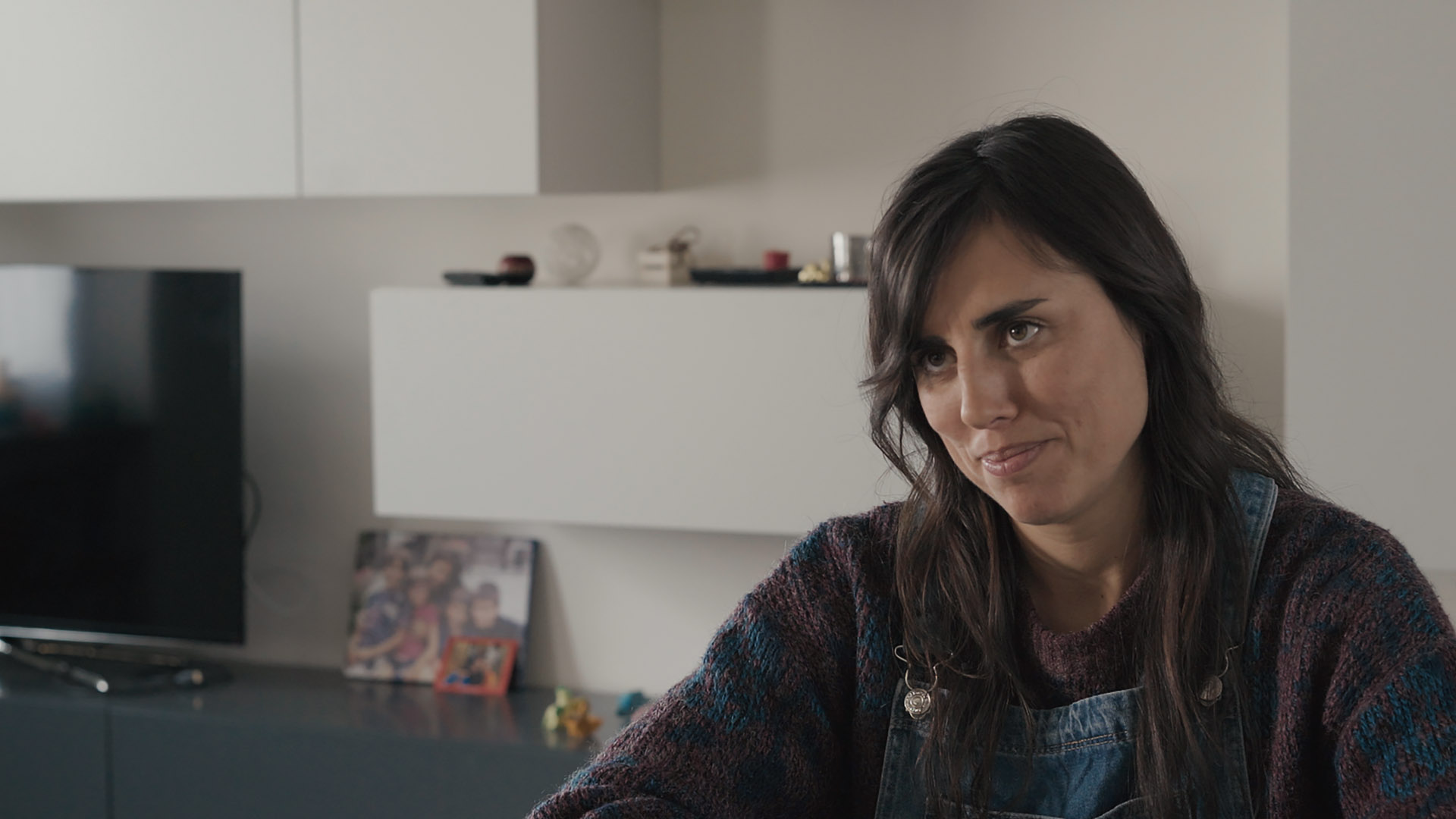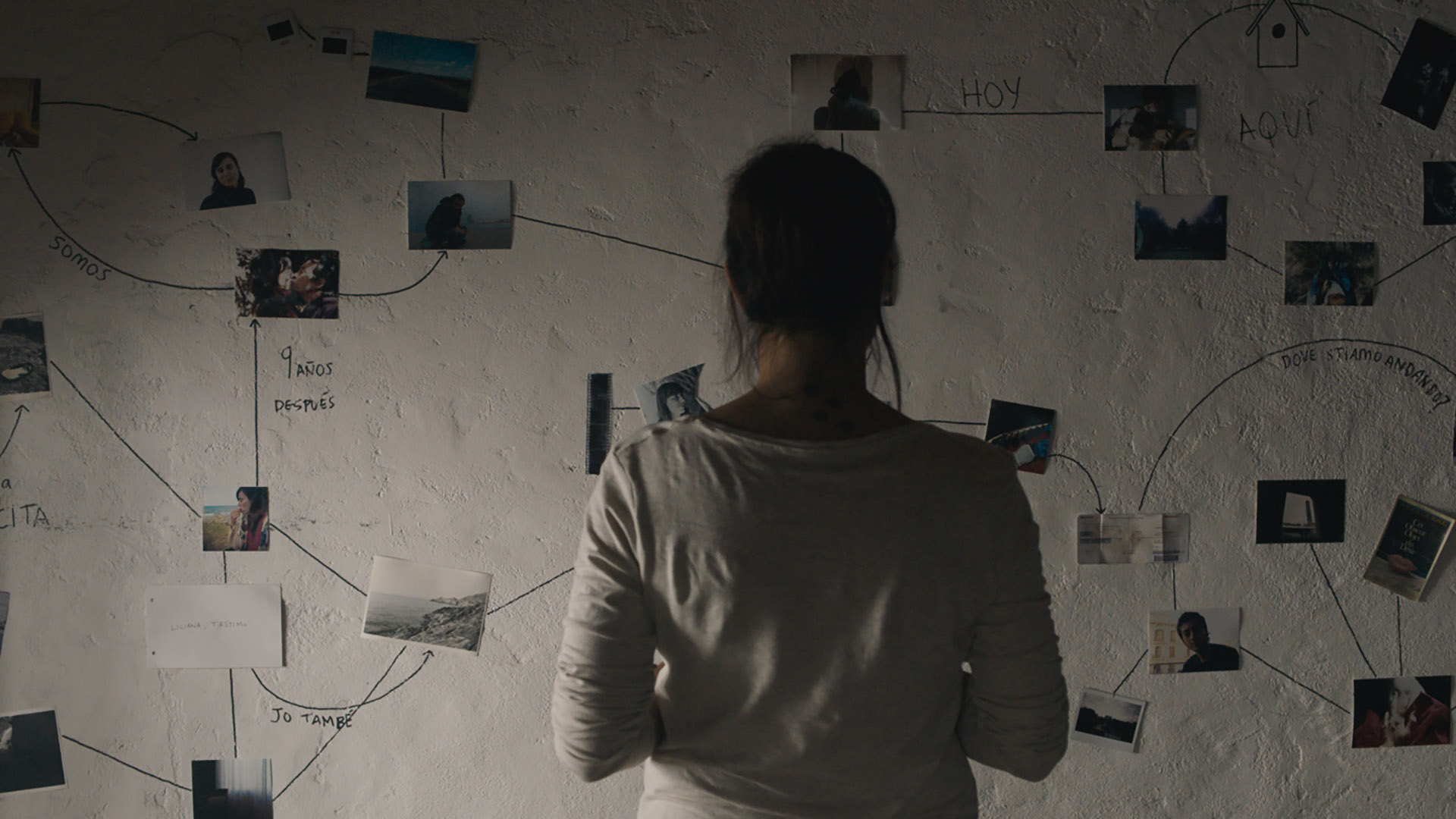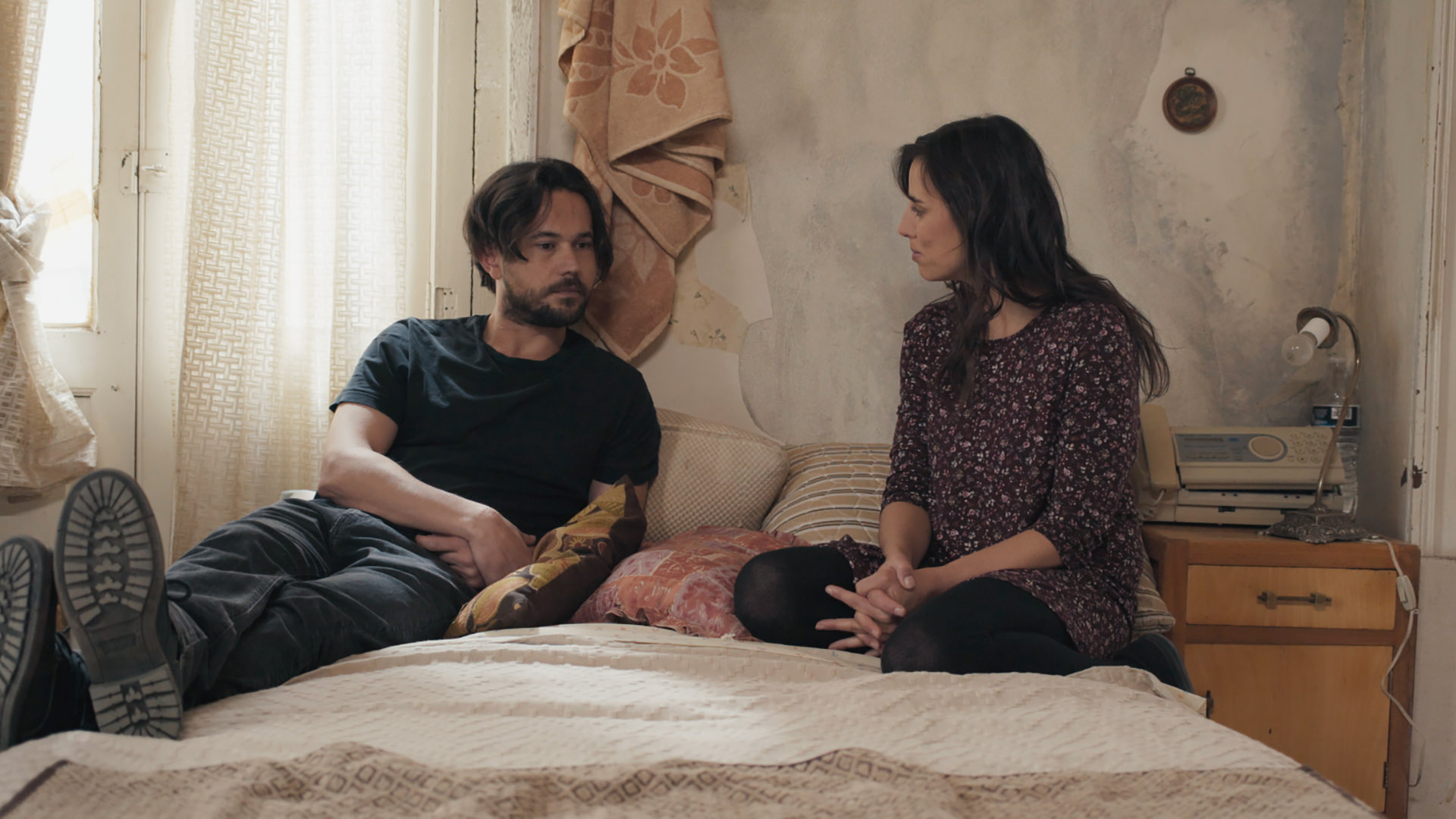
It takes a brave soul to relive all your past heartbreaks and lay them out on the cinema screens to get the picture of what went wrong. Liliana Torres is not afraid of opening up her life for a more intimate and genuine cinematic experience.
She has created “What Went Wrong?” as another piece of her auto-fiction puzzle that this time tries to detangle past relationships, which failed to move forward together with her.
International premiere: Nov. 19, 6.30 p.m, Coca-Cola Plaza
With director Liliana Torres, actress Daniel Froiz and producer Carla Sospedra
1. “What Went Wrong?” is created very intimately as an auto-fiction. What are the advantages and challenges of putting yourself in front of the camera and opening up your life for the audience?
I really think that by exposing my feelings and particular circumstances of my own life I’m not revealing something extraordinary. Indeed, I think that what I go through in my inner world isn’t much different from what is going on inside other people. In this sense I don’t feel nude or exposed, I feel I’m connecting. I guess the special challenge of auto-fiction is the perspective over the character I play and the thesis of the movie. It requires an exercise of distance from the real story. The episodes portrayed in the movie have to be matured and closed enough to be told fairly and with clarity.
I decided to play my own character to be at equilibrium with my ex-partners. I didn’t feel it was honest to ask them to participate and be interviewed if I wasn’t there with them. And, of course, the interviews would be real if I was there. Honesty, reality and truth are the gains from auto-fiction.
Being behind and in front of the camera hasn’t been an easy and peaceful experience. Direction and acting raw materials are very different. In the position of the director, the final objective and the perception are always clear - sometimes difficult, but focused. In the case of the actress, or me playing me, when I was reenacting the emotions, I needed to get to the point in which the feeling blurred me to play the role honestly. That implied to lose clarity for the time the scene was being acted and reviewed later on the combo. That back and forth dynamic was very demanding physically and mentally and made me feel much more vulnerable during the shooting. I had the feeling I was all the time dressing and undressing an “armour”.
It was also very solitary work at times, because I used to rehearse my solo parts with a camera. So, I played the scene and reviewed from the recording; it was surreal sometimes! Me giving indications to myself!

2. What happens in that spot where reality meets fiction?
Such a difficult question. I’m not sure whether I can answer it or not. It isn’t that clear to me. I guess it is a similar process to that that happens when we go through a certain situation in which we are “frozen” to a certain degree: we aren’t able to answer properly or we don’t react as we want to. Afterwards, we take that moment into the reign of the imagination and we change it; we have inner dialogues saying what we exactly wanted to say, imagining what would have happened if we acted differently… sometimes is just a matter of seeing the same situation with more distance and clarity that changes the situation completely. With reality and fiction, something similar happens: How can I explain this experience in a different way, that I get to the conclusions of years in an hour and a half without losing its real touch? How would it have been if those experiences were part of a script?
3. If I say that two people are bound together in a relationship with a tie and each time one or the other breaks the tie it gets shorter and shorter because of the binding to restore it until there's nothing left but a bundle in the middle of two people who are stuck. How do you know when the tie is not worth binding anymore?
This is the key, isn’t it? We ask ourselves this question again and again. When is it for sure that this relationship isn’t retrievable anymore?
I don’t think there is just an intellectual answer for this. To start, what gives us the certainty that we don’t want to stay any longer in a relationship is a feeling. There is a turning point in which we feel we don’t want to keep a relationship anymore. You can try to apply a mathematician’s rule or an intellectual mechanism and write pros and against lists, but even if the list turns out in a negative balance, it doesn’t mean anything if you still want that relationship. So, leaving aside mental health issues, there is a feeling of being fed-up, tired, hopeless that gives us the certainty that we have had enough. We are not learning anything anymore; we are not happy in the situation and it is affecting many other aspects of our life negatively. We have had enough. This turning or ending point - depends on how you look at it - is different for each of us and it is based on the balance of our fear/bravery, emptiness/feeling complete, neediness/empowerment and many others. Sometimes reaching this point has more to do with our capacity to overcome our fears and ideas about us than with the relationship itself. The way that leads us to that exact point is complex and not-linear.

4. If the question and the title of the film would have been “What Went Right?” then how different the film would have been, if at all, and why?
In the film the question comes out from a feeling of guilt and disappointment. This frustration directed to herself is the motivation of Lili’s quest. So, if the title was just the opposite, I imagine it won’t be coming from frustration at all. It is only when something came out right (or how we wanted) that you can ask yourself What Went Right? In that case I picture a peaceful and fulfilled Lili looking back in her past, wandering how did she arrive to that gratifying sensation. It sounds great. And probably the bad decisions as much as the good ones would be leading to that point. In life nothing is sequential. But the tone, the tempo and the urge of the inquiry would be totally different.
5. How did “What Went Wrong?” find its way to PÖFF and what is in your opinion most interesting about the festival?
I don’t know how the movie made its way to the festival. I guess it was screened by some of your partners here in Spain, fortunately. What seems to me more interesting about the festival is its big diversity of movies coming from around the globe. I think that Official Competition is one of the most varied selections I’ve seen. Also, it is amazing how the festival managed to create such different sections giving the spectator the chance to see from very specific films to the best of the year.